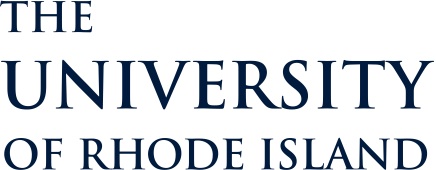Newswise — KINGSTON, R.I., June 13, 2017 — Three Ph.D. students at the University of Rhode Island’s College of Pharmacy have started a company that harnesses big data in a novel approach to drug development.
Nicholas DaSilva of Providence, Kenneth Rose of South Kingstown, and Benjamin Barlock of Portland, Maine, founded Alcinous Pharmaceuticals late last year. David Worthen, a former College of Pharmacy faculty member and longtime pharmaceuticals consultant, is chief operations officer.
“We have always had an entrepreneurial spirit,” said Rose. He and DaSilva had often discussed combining their interest in science with a business venture. Last fall, they sought advice from Frank S. Menniti, a faculty member at the University’s George and Anne Ryan Institute for Neuroscience and chief science officer of the pharmaceutical company MindImmune Therapeutics, which is based at URI, before taking the leap.
“A lot of this is for the love of it, the learning experience,” DaSilva said.
DaSilva, chief executive officer; Rose, chief scientific officer; and Barlock, chief technology officer, have invested countless hours to the startup, working at home on nights and weekends while pursuing their Ph.D.’s. “We are grad students by day and executives by night,” DaSilva said.
Alcinous uses computational software available free on the Internet to sort through 40 million possible drug-binding targets. Calling on their knowledge of chemistry and pharmacology, the students selected five non-traditional protein binding targets for drug action. “We identified them by conducting extensive literature reviews and using binding-site prediction software,” Rose said.
You could say their approach is not a case of man vs. machine, but man and machine.
Alcinous is looking to develop new drug therapies for breast and ovarian cancers caused by the BRCA1 and BRCA2 gene mutations, targeting a class of oncology drugs known as Poly ADP-Ribose Polymerase inhibitors or PARP inhibitors. These drugs are typically a third line of defense, given their severe side effects. DaSilva and Rose believe that by looking at highly specific and uninvestigated binding targets, Alcinous can develop PARP inhibitor compounds that are safe and highly effective with fewer side effects.
DaSilva said there is strong precedent for their strategy. Small firms are increasingly handling the first stages of drug development, thanks to improvements in technology that can mine big data without the need for a large staff. These companies can then gain the attention of big pharmaceutical companies, which complete development and get the drug to market.
However, the timeline and protocol for drug development still require patience and persistence. While still in the pre-clinical research phase, Alcinous is courting private investors to help the company advance to in-depth clinical research in the next year or two.
Alcinous also is pursuing State of Rhode Island innovation grants and other incentives for biotechnology entrepreneurs. In fact, the resources and expertise found at URI and across Rhode Island are reasons why the students chose to incorporate Alcinous here, DaSilva said. The company’s name, on the other hand, has roots far from Rhode Island. In Greek mythology, King Alcinous (which means “mighty mind”) helped Odysseus — hero of Homer’s “The Odyssey” — return home. Rose said he and his partners hope Alcinous will help cancer patients return to health.
And if success is initially elusive, they hope to “fail fast and fail hard” and keep going. “If one of these targets doesn’t work,” Rose said of the five compounds they are exploring, “we have 39 million 995 thousand to go.
